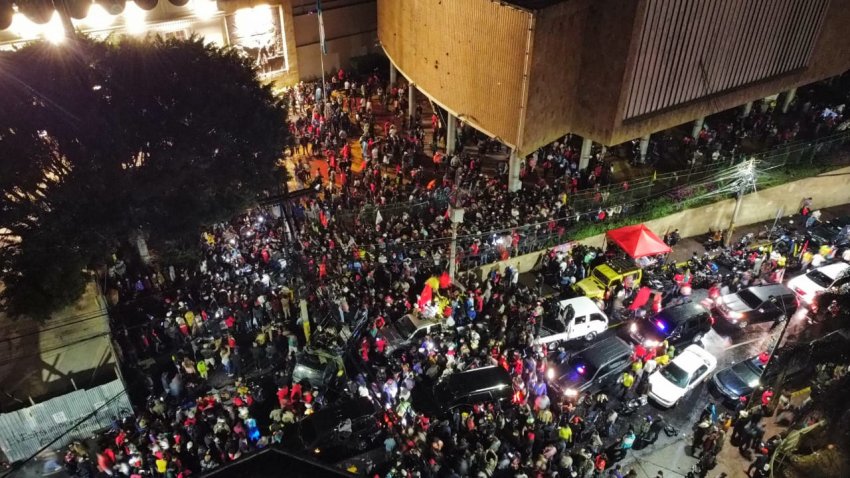
Leftist Libertad y Refundación (Libre) party candidate Xiomara Castro de Zelaya won November’s presidential elections in Honduras with 51% of the vote — the highest proportion of votes for a presidential candidate in Honduran history.
Castro will be sworn in as the first woman president of the country on January 27.
Castro defeated right-wing opponent Nasry Asfura with a margin of more than 10% in an election which had a 70% voter turnout.
Her victory marks the end of 12 years of right-wing rule under the National Party of Honduras (PNH) since a United States-backed coup overthrew democratically-elected president Manuel Zelaya in 2009.
Libre won 50 seats in the National Congress and will govern in coalition with the Salvador (Saviour) Party of Honduras (SOH). As part of their agreement to form a coalition, it was agreed that SOH deputy Luis Redondo would be appointed President of the Congress. However, on January 23, 18 rebel Libre deputies, backed by the ruling right-wing parties, broke ranks to appoint their own candidate, Jorge Calix, as Congress president at a private venue.
Castro denounced the move as “traitorous” and refused to recognise Calix’s appointment. Hundreds of Castro’s supporters descended on the National Congress, to hold vigil and defend the new government.
Despite the crisis, Castro will be sworn in as president on January 27, but will do so in front of a judge, not Calix.
Thousands of Castro’s supporters took the streets of the capital Tegucigalpa to celebrate her victory in November. In her victory speech, she paid tribute to those who had lost their lives in the resistance against the coup government.
“I want to send, from the depths of my heart, an enduring salute to our martyrs, who offered their lives so that today our people can have freedom, democracy and justice.”
She emphasised the commitments from the incoming government: “No more death squads! No more corruption! No more drug trafficking and organised crime! … No more poverty and misery in Honduras!”
Libre’s electoral campaign centred on an anti-neoliberal platform, which proposed higher taxes on wealth, increased welfare and incomes, the withdrawal of mining concessions, and changes to Honduras’ restrictive abortion laws.
Castro promised the formation of a constituent assembly to rewrite the Constitution in favour of Indigenous and women’s rights.
Leaders from across Latin America applauded Castro’s victory.
Cuban President Miguel Díaz-Canel Bermúdez expressed his support after Castro’s victory speech. “12 years had to pass after the coup against Manuel Zelaya, so that the Honduran people could achieve this Sunday's overwhelming victory at the polls. Congratulations to the president-elect, Xiomara Castro. Latin America and the Caribbean also celebrate with Honduras,” he tweeted.
Bolivian President Luis Arce tweeted, “With the historic victory of sister Xiomara, Honduras sees the future again with hope, after 12 years of the coup. La Patria Grande revives the unity of our people. Congratulations to the president-elect!”
Days after the election result, Argentine President Alberto Fernández tweeted, “In communication with Xiomara Castro, the first woman president-elect of Honduras, I was able to express my congratulations on the electoral victory. Her message of unity, solidarity and dialogue is a new source of hope for the people of Latin America and the Caribbean.”